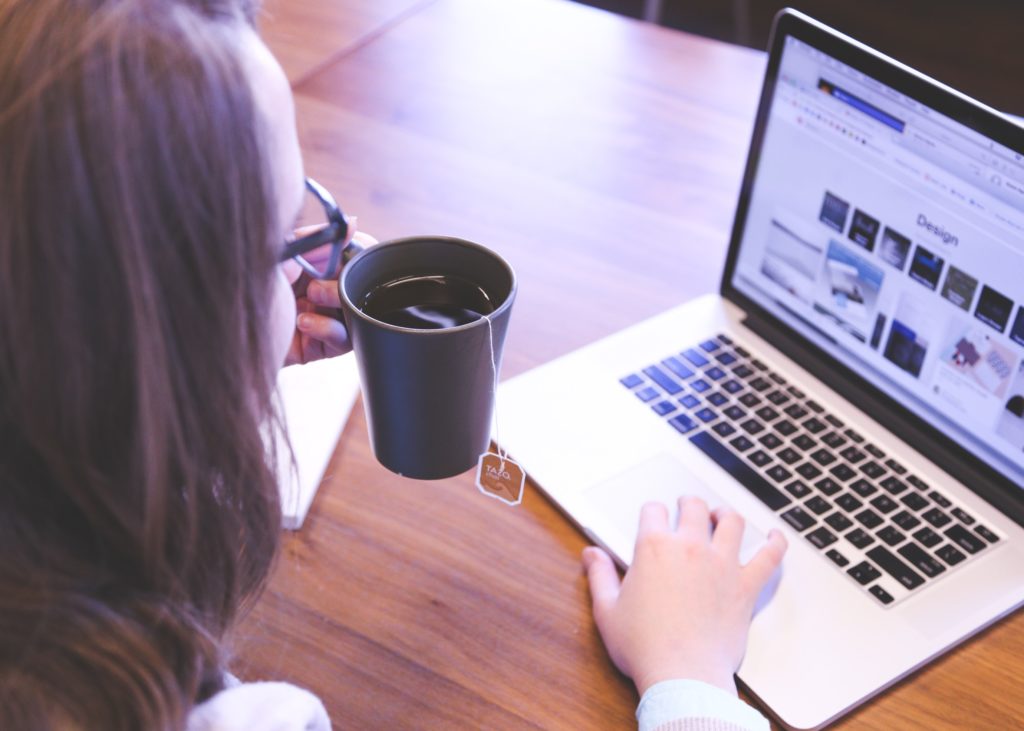3 Ways I Got Better With Money Before Taking A Major Career Risk

I have always wanted to work for myself. Having creative control over my work is more appealing to me than the stability of a conventional job. Ironically, I’m also a nervous person and not a huge risk-taker. So, if following my dreams meant depleting my bank account, it was never going to be an option.
To manage these conflicting aspects of my personality, I knew I’d have to protect myself against the inevitable insecurity of a freelance income. A business generally takes more money than it makes, at least at the start. As a writer, I knew my big investment would be the unpaid time I spent marketing myself, gaining clients, and drafting pitches (some of which would end up in the trash).
Long before I took the self-employment leap, I researched my industry and figured out how my financial situation would be affected. There are specific considerations for every endeavor, but there are also some general ways to set yourself up for success — especially if, like me, you’re a planner as much as a dreamer.
Here are the 3 money steps I took before becoming self-employed:
1. I built up a larger-than-average emergency fund.
Most financial gurus suggest saving an emergency fund of 3 to 6 months of expenses to weather life’s “rainy days.” To put myself in an extra secure position, I saved up for almost a year of my bare minimum expenses. As I mentioned before, this was motivated by the fact that I knew I wouldn’t be able to live off my income at the start of my self-employment journey. Having a substantial emergency fund has kept me from feeling panicked and making decisions based on fear or a scarcity mindset. As in, I know I can still pay my rent even if I’m not making much of a profit.
Of course, this fund took months and months to build, which can be discouraging depending on your personal financial situation. But even if you’re currently living paycheck-to-paycheck, don’t give up on your dreams! A great option is to explore your self-employment idea as a side hustle until you have the financial viability to make a full-time commitment.
2. I figured out what to save for taxes and retirement.
Saving as a self-employed person is especially important because you don’t have an employer-sponsored retirement plan, and no one is taking out taxes for you. I set percentages for taxes and retirement to put into separate savings accounts at the end of each month. This also means that I don’t spend what I make in a particular month until the following month. So, I won’t touch my July income until August, and only after I’ve divvied it up into various accounts.
Beyond retirement and taxes, you might have other savings goals to factor in. I live in Canada, so I don’t have to worry about health insurance, but you might. It’s a good idea to meet with an accountant and financial advisor before you start a business, so you’re clear about government expectations and your long-term financial planning requirements. Again, when you first become self-employed, you might need to dip into your savings, rather than be actively saving. It was important for me to make this period as short as possible — partly due to the discomfort I feel watching my savings shrink, but also because a lack of cash flow is one of the main reasons that small businesses fail.
So, how did I minimize my low cash flow phase?
3. I set myself an income deadline.
When I decided to try freelance writing, I told myself that if I didn’t get my first paying gig by the end of that month, I’d reconsider my decision. I put this deadline in place for two reasons. First, it was a way to motivate me to get my first client. Second, it forced me to be honest if my work wasn’t “working.” It gave me a sense of what self-employment would be like, while I still had a safe way to back out. (Thankfully, I did get my first gig before the end of the month!)
Now, this exact setup may not be for you, depending on your field of work. But in general, having some sort of income expectation is a good way to gain awareness of what’s required to “make it.” It allows you to change your strategy before you end up too far down the wrong path — and before your emergency fund is a goner.
Becoming self-employed made me better with money.
Being self-employed means that every dollar I make is entirely dependent on the effort I put in to get it — and even then, my effort doesn’t always yield a nice check. This has changed my relationship to labor and value, as I am constantly thinking about ways to work “smarter.” There’s no way to hide an off day when your livelihood depends on your effectiveness. This is scary, but it also challenges you to get real about your work and money habits. Personally, I am more checked in to my money than ever before.
Sarah Blake is a musician and writer, who has been fascinated by the world of personal development since she was a child. A second-generation Canadian, she is especially interested in the ways that people build wealth, starting from nothing. You can find her at www.sarahblakecreative.com.
Image via Unsplash
Like this story? Follow The Financial Diet on Facebook, Instagram, and Twitter for daily tips and inspiration, and sign up for our email newsletter here.




